Argentina’s current foreign minister still talks like a Cabinet chief at times. Santiago Cafiero, the man most trusted by President Alberto Fernández recognises that the coronavirus pandemic was a factor eroding their administration, describing the internal situation of their ruling Frente de Todos coalition. He says that he knew in advance that Juan Manzur would replace him as Cabinet chief and identifies Mercosur as the main state policy in foreign relations. He is optimistic as to an agreement with the International Monetary Fund.
You first got to know Alberto Fernández in 2017. How did you build a relationship of so much trust in so short a time?
We met quite fortuitously as two comrades who thought the same way about Peronism. We agreed on what was needed despite very different ages, generations and track records. That’s how we began to converse. The president was and continues to be a person very open to political debate and new ideas. That was what gave me the possibility of entering into a relationship of great trust, not by accumulation of calendar time but political vision. We complement each other in terms of needs.
Within a little more than a year you were already his campaign manager.
Almost two years, actually. It came about in a very particular way. It was a disunited Peronism, typical of the times of defeat. The ghosts of disunity were beginning to filter down throughout the grassroots, as well as those with any kind of institutional power. That happened. From 2015 onwards, there was much disunity. And as from 2017, but fundamentally in 2018, we began to work towards unity. Peronism was expressed by Unidad Ciudadana (Civic Unity), the Frente Renovador (Renewal Front), the Partido Justicialista (Justicialist Party) beyond Unidad Ciudadana and by the governors linked by Consenso Federal (Federal Consensus). It was quite scattered. The labour movement also kept its distance although it had already begun to tread the path of unification via their three-pronged leadership. Many of us comrades began to think that unity was essential. Alberto was the one convoking us. He began to develop concepts of what route this need should take – it should be a very Peronist unity of action and concept. All those archipelagos had to find a joint and highly direct action with clear objectives: to unify, defeat Mauricio Macri and offer a Justicialist option.
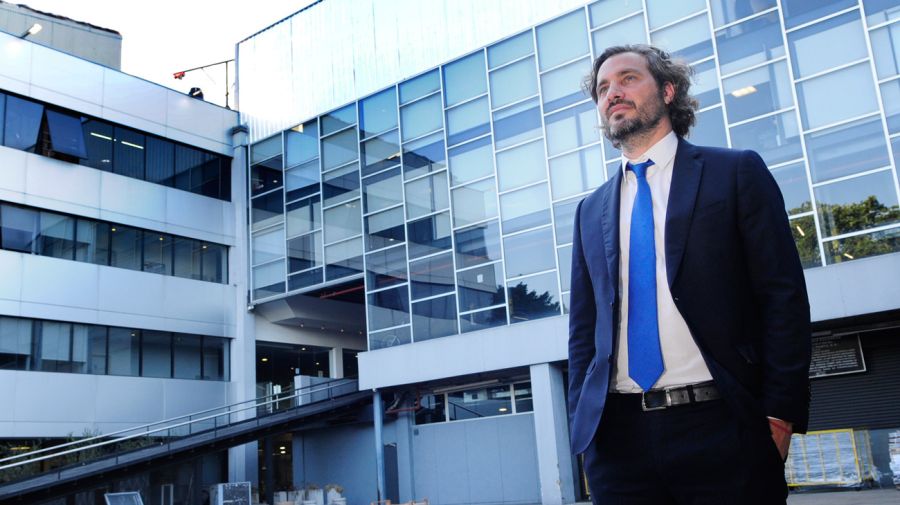
How did you generate a level of trust with so little previous experience? Did you ask him why he was giving you those responsibilities?
The relationship was very honest from the first day. Alberto and I met. It was not that I was looking for something or that he was looking for something in the group we began to form. It was a very honest relationship from the first day and free from personal interests.
And to what do you attribute that empathy at first sight?
To our concept of Peronism and its need for renewal, expressing new ideas in a new world. At that time we were looking for possibilities to defeat Macri, which seemed very difficult. Today the need for a Peronism which must advance with new ideas has been solidified, summoning many productive and middle-class sectors.
Alberto Fernández said that the [election] defeat was due to the loss of the middle ground. Would you have to become less Kirchnerite to recover the moderates?
I don’t think that’s what it’s about. We lost the midterms in most urban centres. There you need a very concrete proposal. There we lost electoral volume. It’s not an ideological question.
Were the urban centres more adverse to Kirchnerism?
To our policies. They had accompanied us in 2019.
More productive provinces like Entre Ríos have no major urban centres and you lost there too.
There the challenge was different.
So were there two different challenges?
The challenge of the farming leadership. In these last two years Argentina has broken all the historical records for beef exports yet we continue discussing whether beef exports are being restricted. Our problem is setting things in the right framework of common sense according to the data, coming out of this contradiction via objectivity.
Or could it also be that aside from the framework of common sense, whatever you say today is always marked by what you said in the past? A different catechism would be needed.
You are saying that they don’t believe us so we need to show data.
In the same way that it takes time to build an image, you also need time to change it.
The challenge is to show the data and to see how they can be backed up via communication. If that backup has to come from the complex of the traditional media, we can see that we are limited for obvious reasons. I’m not going to carry this any further. We all know what it’s about. But we need to look for a more intelligent approach, perhaps involving a lot more effort.
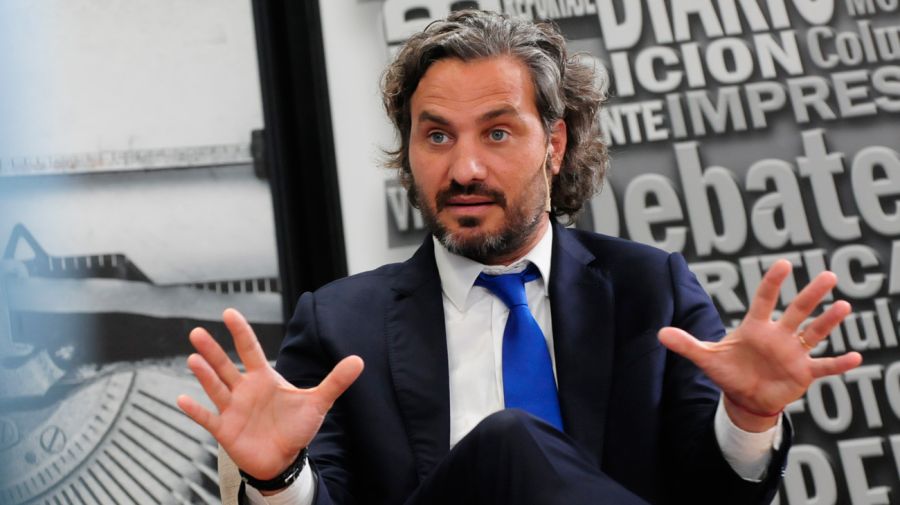
What was your dialogue with Alberto Fernández like when he told you that he wanted to replace you [as Cabinet chief] with Juan Manzur? Did the move to the Foreign Ministry surprise you?
Juan and I have a very close relationship. He was among the first governors to come out in favour of Alberto’s candidacy and he has stuck to that. At the time of coming back from the shock of the PASO primaries, he added a lot of stability. My conversation with Alberto was that of a president with one of his aides who is also a lifelong Peronist militant. As such I’m going to be where the president needs me, with the grassroots, in a ministry or wherever. It was a conversation of great honesty in which he commented to me that he was thinking of taking decisions to freshen up his Cabinet. He proposed that I go to the Foreign Ministry and naturally I accepted – I would have accepted anything. I’m a political militant and we Peronist militants are always ready to fight on any battleground.
Which is the better job, being Cabinet chief or foreign minister?
They’re different jobs. Being foreign minister has some very interesting challenges. When we took office, we had to save Mercosur. The relations between its various countries were very tense but we overcame that via more integration, being open to dialogue and beginning to promote it. If Mercosur does well, Argentina does well, as do the other countries. Mercosur has to do well for Argentina to advance in foreign policy.
What does it mean that the president has now named two foreign ministers in a row without any background in diplomatic tradition nor focus on international issues?
The Foreign Ministry has a highly skilled diplomatic corps and that is complemented with political leadership. Their technical capacity cannot be supplanted but nor must it want to exceed the dimension of democratic legitimacy. A government imprints on its foreign policy the objectives of its popular mandate. That’s what was done. The president defines political figures which represent him and which represent the direction which Argentina must follow in the framework of foreign relations. That is complemented by the technical capacity of those who represent us.
You praised the triumph in Chile of Gabriel Boric, who has harshly criticised Venezuela, Cuba and Nicaragua. Could the Foreign Ministry occupy a relevant role in taking on a centrist discourse?
I praised the political process in Chile. We do not vote in Chile and nor do we elect its president.That is the principle of non-intervention, which guides Argentina’s foreign policy as one of its pillars, like human rights or the Malvinas, for example.
In hindsight, [Argentine Ambassador to Chile] Rafael Bielsa [who criticised Boric’s rival José Antonio Kast] landed up on the right foot.
(Laughs) He made some comment to that effect.
Nobody imagined the difference in favour of Boric when Kast won the first round.
We work with the presidents which countries choose. If there is affinity and a common outlook over the struggle against inequality, we feel ourselves to be in better company. Argentine foreign policy is defined by its realism, as well as its dignity and friendly spirit. It is realistic because it works with a world still shaken by the pandemic and with the real world, with the leaders there are.
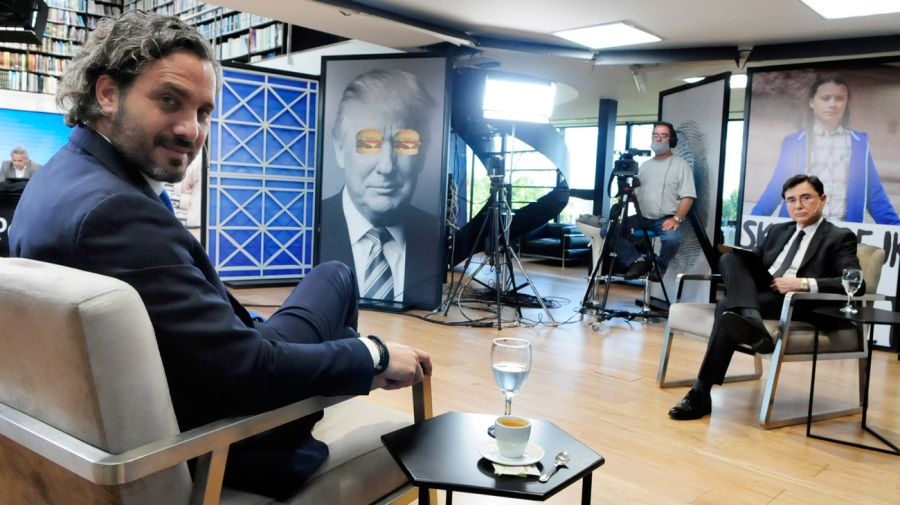
Do you mean friendly in the sense of not being critical? Do you always tone down the criticism?
Friendly in the sense of not generating conflicts. Argentina does not generate conflicts where there are none. It is dignified because we are always going to defend the national interest and our sovereignty.
You said textually about Boric: “We see with great enthusiasm the possibility of being able to recreate a spirit of development and growth as a regional bloc.” Are there the seeds of the ABC (Argentina, Brazil and Chile), as desired by Juan Perón with Alberto Fernández, [Luiz Inácio] Lula [da Silva] and Gabriel Boric?
Our state policy in terms of integration is Mercosur, which has succeeded in restoring harmonious relations between the four countries in a bloc which promotes democracy and peace, lowering the tension from the conflicts.
Brazil at times represents two-thirds of the economic output of all South America. Without being unfair to the others, you might say that Mercosur for Argentina is largely Brazil. Was inviting Lula to the December 10 rally something measured? Was thought given to the cost-benefit ratio?
Nobody speculates about that. There is no hiding that the president is a friend of Lula. It was in the framework of a popular festival of democracy and human rights. Inviting a democrat who had unfairly suffered persecution and imprisonment was a symptom and an interesting debate. Neither should we forget that [Uruguay’s] José ‘Pepe’ Mujica was also there.
Was that an afterthought to balance things out?
(Laughs) He was there the whole rally.
Would it suit Argentina for Lula to be elected president of Brazil?
My role as foreign minister is superior to my personal preferences.
How is the relationship with the United States? Would it be correct to say that Gustavo Beliz and Sergio Massa are the members of the ruling coalition most linked to that country?
You have to move away from those clichés which they try to establish. Argentina has only one single strategic ally: the defence of its national interests. On that basis we have relations with all countries, including China. We are in the process of marking 50 years of [diplomatic] relations with them and we would like to project 50 more years. We have some very interesting projects, not just for exports and imports but also for infrastructure to develop our country. We also have projects with the United States. We have a very mature and honest relationship with the United States but always defending national interests.
Vaccines are the best example. Firstly, Argentina joined the productive chains of two vaccines, Sputnik and AstraZeneca, with local production, thus waving the Argentine flag. They speak of geopolitics and today we have vaccines of Russian, Chinese, British, Swedish, Argentine and US origin. Those are realistic relationships. We needed vaccines and we went out to look for them where they were. If we subordinate foreign policy to ideology, the only things we are going to announce are failures.
Does the tension between the United States and China affect that pluralistic stance?
Argentina always has an equidistant position when there is a bid to impose agendas which do not represent its national interests, continuing to advance in the idea of a multilateral world. We have to seek dialogue. We will continue to defend human rights as a fundamental pillar. We are also going to question and repudiate sanctions and embargoes. Argentina has an autonomous foreign policy and that sometimes bothers people.
It is plain that there is a political component with the International Monetary Fund [negotiations]. What’s going to happen with that agreement?
We need to resolve the problem of Argentina’s foreign debt, a problem which began a long time ago. We have to resolve it but we cannot do so in a way which is a new clamp on national development and job creation. We have seen with great enthusiasm from the latest data how unemployment continúes to come down, from a peak of 13 percent during the pandemic to eight percent today. We see how the utilisation of installed industrial capacity is advancing, creating greater opportunities and how the sectors are growing. Bad negotiations, a bad definition of this foreign debt problem could be very harmful for the future. In this sense we are accompanying and helping, in everything related to geopolitical issues or international policies, the lines presented by [Economy] Minister Martín Guzmán. We need to continue in that direction because we need to have a good negotiation so that everything we have achieved in that time does not blow up. What is the calendar of definition? I don’t know but I do know the intended aim – to defend national interests above all else.
And are you optimistic as to arriving at an agreement?
Yes, I am.







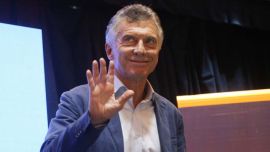







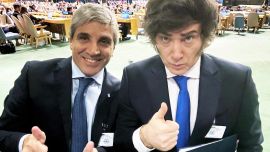



Comments